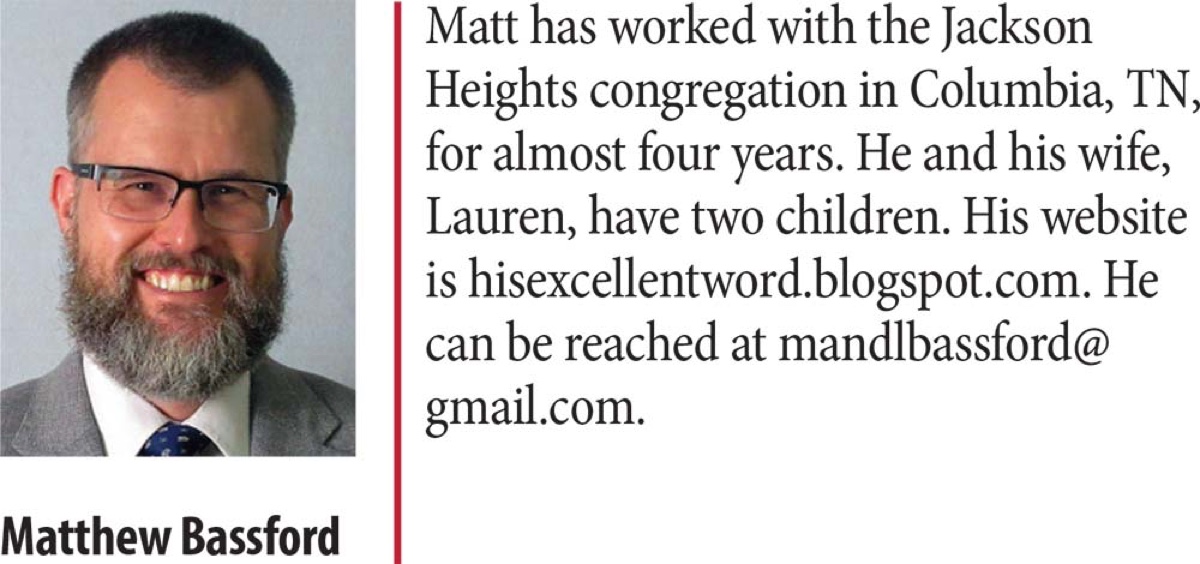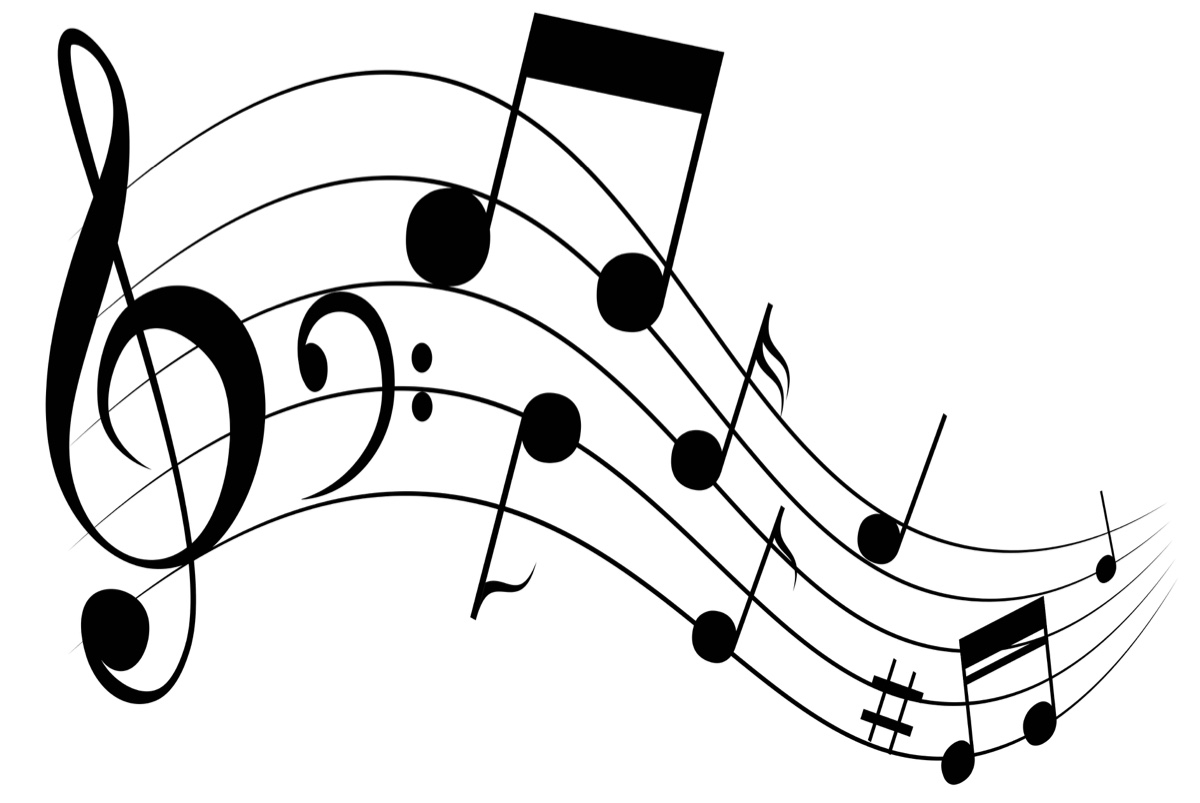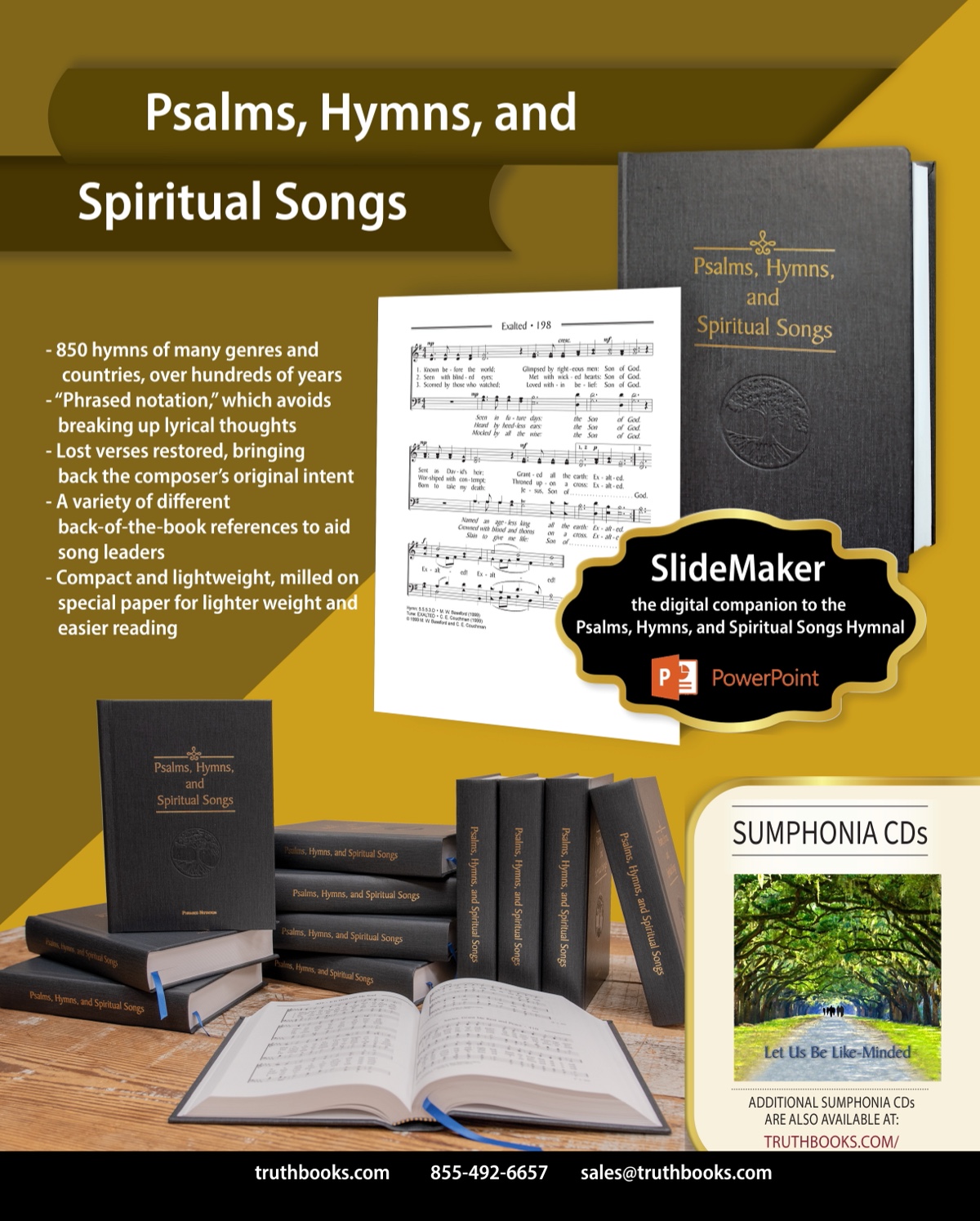by Matthew Bassford
Synopsis: Music touches the heart and resonates within the soul—teaching, soothing, challenging, etc. Let us, therefore, cultivate a love of music in our children. Our homes will be blessed, and our worship will be more meaningful.
Wherever beauty is, God is there, too. He is the Author of beauty, and He designed human beings to appreciate it. There is, of course, an entire branch of evolutionary psychology that aims to explain why people have a sense of aesthetics. However, all these explanations fail in the face of the Darwinian imperative of survival. Why make an aesthetically satisfying spear when a crudely utilitarian spear made in half the time will kill the deer just as effectively? Nonetheless, human beings invariably choose the former course.
Rather than resorting to strained attempts to explain our love of beauty as evolutionarily adaptive, we should allow it to guide us to our Creator. Beauty is orderly, and it reveals to us the order and design of the universe. Who has not marveled at the loveliness of the curves and arcs in a seashell? Each is an expression of the complicated mathematics embedded in the DNA of the creatures that created them.
The same is true of music. On the Western musical scale, C4 (middle C) is a vibration of about 261.63 Hz. Double the rate of vibration, and you arrive at C5, one octave up. Halve it, and you produce C3, an octave down. A quarter note is twice as long as an eighth note, and half as long as a half note.
Every musical note can be described precisely using math. Every song ever created represents a series of mathematical relationships, note to note, chord to chord. Really, Beethoven wasn’t a musical genius. Rather, he was a mathematical genius who expressed his creativity using a keyboard instead of a chalkboard.
All of this makes music sound incredibly dry, yet it is anything but. When all that math makes our eardrums vibrate, we perceive not numbers but beauty. Indeed, we perceive beauty of such intensity that it stirs us to the depths of our souls. The joy that music evokes is the joy of encountering the handiwork of God. If Beethoven was a genius, how much more of a genius is the One who invented the relationships that Beethoven exploited?
When God is so evident in music, it follows that a godly education ought to be a musical education. Unsurprisingly, our increasingly godless society is also increasingly losing touch with music. 150 years ago, most people possessed some measure of musical accomplishment. The only picture I have of my great-great-grandfather is of him sitting on the front porch with his banjo in his lap.
Today, that is no longer true. We need only listen to worldly people attempt to sing “Happy Birthday” to learn how innocent of musical accomplishment they are! Piano sales have languished for decades. Active participation in making music has been replaced by passive reception.
Even there, Americans are not what they once were. Pop music today is mathematically much simpler than pop music 50 years ago. Its dynamic range is narrower, its rhythms less complex, its chord progressions less sophisticated. Those who have lost the ability to create music also have lost the ability to appreciate it.
It is not too much to describe this atrophy of our musical selves as a work of the evil one. The devil thrives in realms of disorder and spiritual deadness. If we wish to counteract his efforts, let us ensure that our children are alive to music.
This begins with connecting them to our sacred tradition of hymnody. If music is of God, the command to teach and admonish one another in psalms, hymns, and spiritual songs makes perfect sense. It combines our intuitive awareness of the divine in music with an explicit acknowledgement of His glory.
Even the pattern of our worship shows His wisdom. For the denominational audience watching a praise band onstage, music is about someone else. For a congregation of the Lord’s people joined in song, music is about us. It is beauty that we create together, in which every voice contributes to the whole.
Our song also unites us. Research has shown that singing together in a group causes the pulse and breathing rates of the participants to sync up. We literally become of one heart and one soul! Singing also causes our brains to release dopamine, providing a pleasurable natural high. It’s hard to imagine an activity that would be better at creating group cohesion, which (in part) is why God commanded us to engage in this one.
The more that children involve themselves in singing hymns, the more united they will be with the church and with God. As always, we teach them to do so first by our example. Children who see their parents singing heartily in worship learn that it’s important (this also is one reason of many why “children’s church” is a terrible idea). On the other hand, children with parents who participate reluctantly or not at all learn the opposite lesson.
The instruction that begins in a congregational setting ought to continue in a family setting. When my wife was growing up, my father-in-law led his family in singing on the way to services three times a week. Today, all of his musically adept children are faithful Christians. I don’t mean to suggest that this is entirely because of his drive-time efforts (though anecdotally, it seems to me that young people who love to sing are less likely to fall away), but it did set a positive tone.
For other families, the living room might be a better setting for devotions than the minivan. For the investment of five minutes a day and $50 worth of hymnals, any family can sing a hymn daily from now until when the kids move out. Given the hours we spend on social media and the hundreds of dollars we blow on Amazon, is this too much to ask?
Additionally, there are ways to combine family worship with family study. As I write, I’m putting the finishing touches on a metrical psalter called Worshiping with the Psalms. A metrical psalter contains paraphrases of all 150 psalms into rhyme and meter (like “Hallelujah! Praise Jehovah!” is a paraphrase of Psalm 148). I also have suggested familiar tunes to be used with each of my paraphrases. For instance, my paraphrase of Psalm 65 can be sung to the tune for “Joyful, Joyful, We Adore Thee”. I hope that this psalter will find a place in homeschooling and family devotions.
The process would be simple. Read the psalm. Sing the psalm together. Talk about the psalm. There are 183 paraphrases (I split some psalms, most notably Psalm 119, into multiple paraphrases), enough to sing through twice in a year or once in a normal school year. I am confident that anyone who completes the cycle will emerge, not only with a better appreciation of the Psalms, but also with a better appreciation of God.
Regardless of the means we choose, it is beyond dispute that God is the source of music, and He created it for us to seek and find Him. Music does not belong to the unbeliever. Rather, it belongs to us because we belong to Him. When we introduce our children to music, especially sacred music, we introduce them to Him, too.


